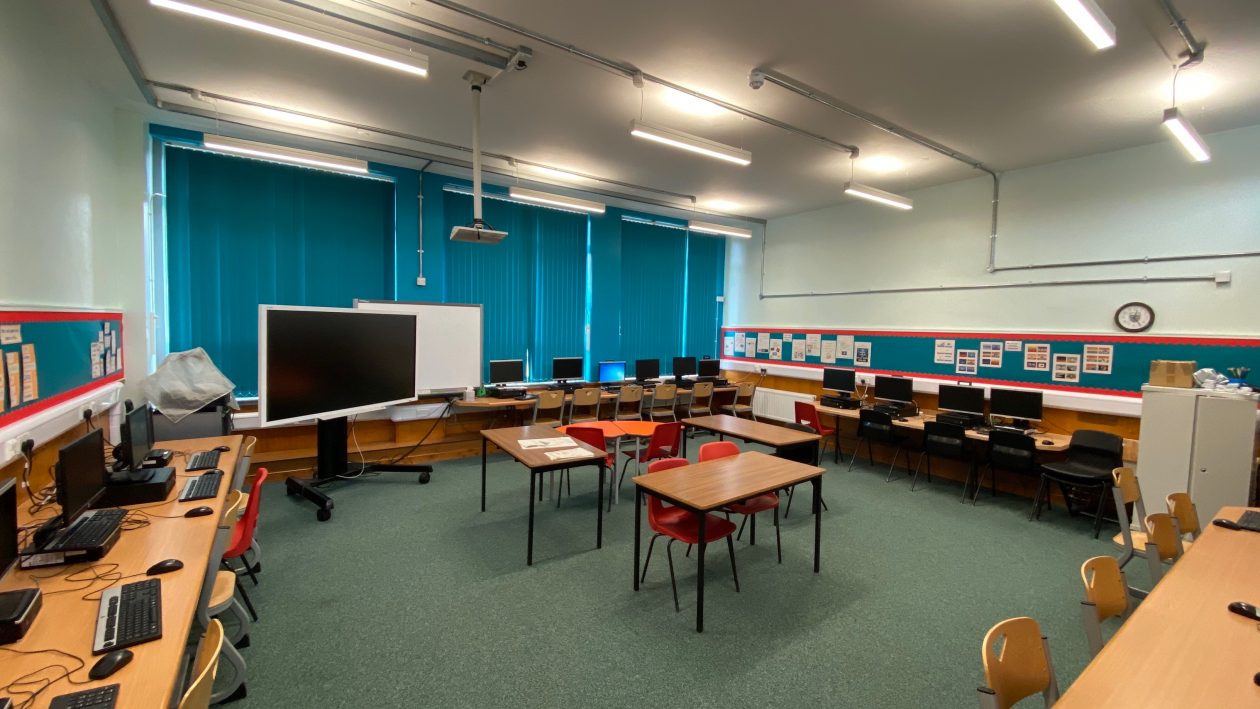The Curriculum for Excellence
We have recently updated our Curriculum Rationale with all stakeholders contributing.
Bringing learning to life and life to learning
Curriculum for Excellence is now being used across Scotland for all 3-18 year olds – wherever they learn. It aims to raise standards, prepare our children for a future for a future they do not yet know and equip them for jobs of tomorrow in a fast changing world.
Numeracy and Maths
There is now a much greater emphasis on practical interactive activities in Mathematics. We use a variety of resources, including Scottish Heineman Mathematics, maths websites, games, number lines, number squares and other practical materials.
In addition to traditional calculations the children have regular mental maths practice, are set investigations, tackle problems and use calculators, computers and whiteboards in the course of their work.
Where possible this work is presented in context, i.e. related to real situations.
Parents can help develop children’s understanding by reference to mathematics in everyday living, e.g. numbers on the door, telling the time, shopping, handling money, finding out how much water is used in the house in a day.
Literacy and English Language
Health and Wellbeing
This is an increasingly important part of the curriculum and incorporates Physical Education and Personal & Social Education as well as promoting a healthy lifestyle which includes mental and emotional as well as physical well being. Seafield has achieved Health Promoting School status.
P.E.
This is an important element of the curriculum in its own right and also in building children’s co-ordination and confidence. All children are expected to participate unless unable to do so for medical reasons, in which case this should be notified to the class teacher in writing.
Children in P4 – 7 have one lesson per week with a visiting specialist teacher and at least one more lesson with their class teacher.
Children in P1 – 3 have at least 2 lessons per week with their class teacher and additional lessons with the visiting specialists when time is available.
The lessons are conducted in the large, well equipped hall, or on the playing field if the weather is suitable.
Throughout our programme we aim to develop the children’s confidence, self-esteem and social and moral values and utilise a number of highly regarded resources including “Skills for the Primary School Child” and “The Police Box”. We also try to involve members of the community such as the Police Schools Liaison Officer and the School Chaplain.
Expressive Arts
Art
P4 – 7 classes have lessons with the visiting specialist teacher as well as the class teacher. Art is an important form of expression and communication for children.
This also develops co-ordination, control and visual perception.
There is a specific Art Room.
Music
All children receive lessons from the visiting specialist teacher as well as their class teacher.
There is a choir and recorder groups and all children have the opportunity to play a wide variety of percussion instruments.
Children who have an interest in playing the violin or trumpet can be tested for aptitude and if successful will receive lessons from a visiting tutor. There is a charge for this service.
Drama
This is also an important, if often neglected, form of children’s development. It incorporates many other subjects such as English Language and Personal and Social Education.
Primary 1 – 3 classes use the BBC Radio series “Let’s Move” and “Time to Move” as a basis for their programme and older children use role play, published plays and their own writing.
On occasions the children may perform a play or give a presentation to other classes or the rest of the school.
Religious and Moral Education
Although the school promotes Christian values it does so in a non-denominational way. These values of caring for others, sharing, fairness and hard work are presented through specific R.M.E. lessons, through assemblies, through example by the teachers and also through the daily hidden curriculum of teaching them whenever the opportunity is presented in day to day life.
There is a weekly whole school assembly which is led by a class, a Principal Teacher, a Deputy Head Teacher or the Head Teacher.
Special festivals are celebrated throughout the year, e.g. Harvest, Christmas, Easter. The children are taught about other major world religions, Hinduism, Islam, Judaism.
Social Studies (IDL/Topic)
These are mainly taught through a theme based approach in which they are presented in real-life context.
Technologies
Digital Literacy
This is an increasingly important part of the curriculum and, indeed, is used as a tool in most other subjects.
In common with all Moray schools we have a networked system managed by the council’s I.C.T. department.
Our computer suite has 21 computers and 17 laptops and each class has its own machine. The school also has netbooks available that can be used in each classroom.
All children have their own password and e-mail address. They will be taught to use e-mail, the internet, word processing, spreadsheet and information handling, as well as many other Digital Literacy skills. Children throughout the school are taught about internet safety and how to keep themselves and others safe on the internet. There will be more use of the National learning interface GLOW, and all pupils and Parents/carers will have access to this leading innovation in education.



